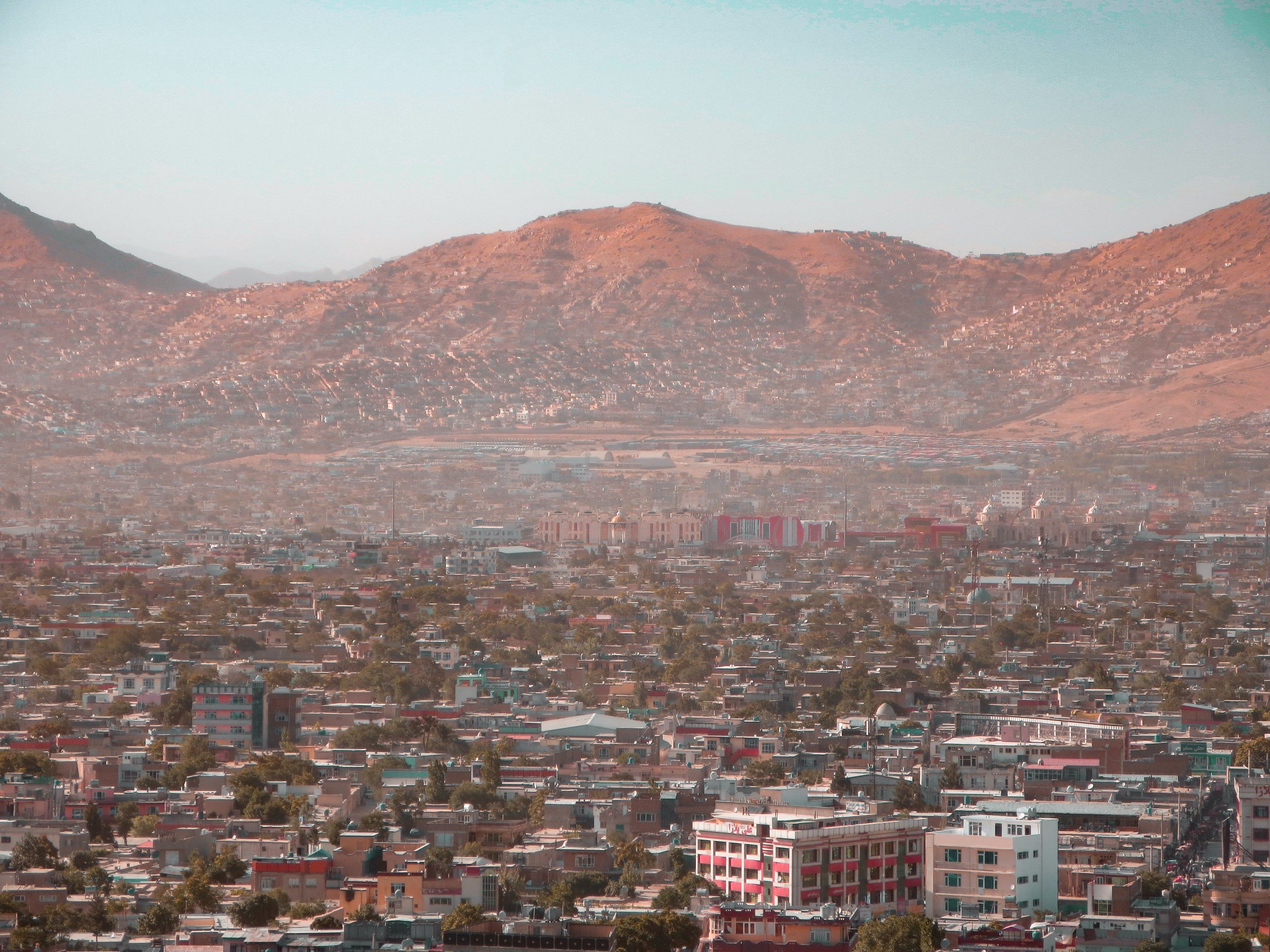PUBLICATIONS
Coercive Brokerage: Paramilitaries, Illicit Economies and Organised Crime in the Frontiers of Afghanistan, Colombia and Myanmar - Working Paper II
This paper is the second of a three-part series exploring the nexus between paramilitaries, illicit economies and organised crime. This research paper examines the nexus between paramilitaries, illicit economies and organised crime in frontier regions, through detailed case study analysis of these phenomena in the borderlands of Afghanistan, Myanmar and Colombia.
Prof Jonathan Goodhand, Dr Patrick Meehan, Camilo Acero & Jan Koehler
January 2024
Opioid Market Trends in Afghanistan: Poppy Cultivation, Policy and Practice Under the New Regime
This research paper set out to capture the implications of the Taliban’s return to power in Afghanistan in August 2021 for the local realities of the opium trade and the diverse actors whose lives are entangled in the country’s pervasive drug economy. Focusing on a narrowly defined geography and period, the paper navigates the uncertainty that was omnipresent following the announcement of the Taliban’s opium ban in the two important localities for the country’s opium economy: Helmand – the source of more than half of Afghan opium before the April 2022 ban took effect – and Nangarhar, the key opium-producing province in the eastern part of the country.
Prem Mahadevan, Maria Khoruk, Alla Mohammad Mohmandzai & Ruggero Scaturro
January 2024
Lost in Transition: Gold Mining and the Political Economy of Takhar, Afghanistan
This paper examines the emerging dynamics, risks and opportunities within Afghanistan from the perspective of the gold mining industry in the north-eastern province of Takhar. While Afghanistan has relatively small value deposits compared with other resources, insights into the evolution of political economies surrounding the gold sector, its role in the economy and foreign intervention, shed light on broader dynamics of the extractives industry in the country.
Marcena Hunter & Alastair MacBeath
December 2023
The impact of Afghanistan’s drug trade on its neighbours: the case of Pakistan, Iran and Tajikistan
This research examines the impact of Afghanistan’s drug trade on the country’s neighbours, with a particular focus on the three countries, Pakistan, Iran, and Tajikistan, which account for the highest volumes of narcotics that transit from Afghanistan. It explores policy options in the post-August 2021 context and considers the prospects of and challenges to greater regional cooperation.
Shehryar Fazli
November 2023
A New Exodus: Migrant smuggling from Afghanistan after the return of the Taliban
Kabul's fall to the Taliban in August 2021 spurred the fourth wave of distress migration from Afghanistan in 50 years. This research uncovers common patterns in Afghan migration and the impact of the Taliban's return on human mobility. It draws on interviews with migrants, smugglers, and financiers, revealing an entrenched illicit economy essential to Afghanistan and beyond. This study aims to analyse post-Kabul human mobility; and investigate the role of informal value transfer systems (IVTS) in clandestine migration.
Prem Mahadevan, Maria Khoruk, and Alla Mohamad Mohmandzaï
November 2023
Armed conflict and organised crime: the case of Afghanistan
This paper contributes to research on the relationship between conflict and organised crime (the crime–conflict nexus), using Afghanistan as a case study. For the past four decades, Afghanistan has been plagued by internal armed conflict, influenced by local, national, regional and international external actors, and the intricate relationships among them. To varying degrees, power, politics and criminality informed these relationships. Organised crime provide actors in Afghanistan with significant political power, while powerful political actors are uniquely positioned to reap the profits of the country’s criminal markets. This paper gives an account of the existing literature on Afghanistan’s crime–conflict nexus, identifying some of the key insights that this literature has revealed. To do so, it uses a four-pronged framework, exploring how conflict has fuelled organised crime in Afghanistan; how organised crime has fuelled conflict; how conflict over the control of illicit markets has resulted; and how organised crime has contributed to the erosion of the state. By assessing the literature on Afghanistan’s crime–conflict nexus, the paper identifies knowledge gaps and suggests areas for future research.
Annette Idler, Frederik Florenz, Ajmal Burhanzoi, John Collins, Marcena Hunter & Antonio Sampaio
April 2023
Human trafficking in Afghanistan: what hope for change?
Decades of wars, internal conflicts and political instability have driven millions of Afghan families into poverty and increased human suffering and vulnerabilities, eroded community resilience, and amplified human trafficking activities (and in several cases also created new forms of these practices). This chapter first provides a brief overview of the main trafficking forms, and their widespread reach and practices in the Afghan context, both before and after the Taliban’s takeover in August 2021. Second, it discusses the potential implications and impact of the new Afghan government, international actors and non-governmental organisations’ policies, intentions and perspectives for the multiple humanitarian crises in the country, especially for the development of ways to address human trafficking in particular. I argue for prioritising humanitarian assistance. Stakeholders need to pursue a pragmatic approach to responses and negotiations that puts human lives at its centre, to prevent worsening the humanitarian crises, exacerbating vulnerability to human trafficking, and causing further loss of life and other harms.
Thi Hoang
November 2022
Opium, meth and the future of international drug control in Taliban Afghanistan
With the fall of Kabul in August 2021, the Taliban swept back to power with almost shocking speed and coherence. This was despite two decades of intervention and state-building efforts by NATO powers, which had sought to forestall precisely this outcome. This failure of a direct intervention strategy raised immediate questions over the future shape of Afghanistan’s drug policies and how it would engage with multilateral forums such as the United Nations. The UN drug control system will have to contend with whether and how Afghanistan and UN member states can find a way to cooperate over the country’s drug policies, through anti-organised crime treaty and other frameworks. The Taliban’s April 2022 announcement of the reintroduction of an opium production ban has revived one of the key questions around its similar policy in the early 2000s: is this a sustainable and sincere move, or an opportunistic or impossible intervention?
John Collins, Shehryar Fazli & Ian Tennant
November 2022
Narcotics smuggling in Afghanistan: links between Afghanistan and Pakistan
This research paper examines trends in Afghanistan’s opium and heroin trade and the Afghanistan-Pakistan drug smuggling nexus. It begins with a brief overview of a collapsing formal economy that lends itself to transnational organised crime, before a specific discussion about a drug trade that is deeply entrenched in the Afghan economy and its politics. It traces the Taliban’s historic stance towards narcotics and assesses the prospects of the Taliban’s 3 April 2022 edict prohibiting poppy cultivation and the use and trade of all types of narcotics across Afghanistan, which could have grave implications for a collapsing economy.
Shehryar Fazli
June 2022
Illicit markets and targeted violence in Afghanistan
This paper looks at targeted assassinations through the lens of illicit market violence in Afghanistan. It explores its potential as a key proxy to project current and future trends of other illicit and criminal market development in the country. The paper suggests a framework for further research to examine the evolution of illicit markets in Afghanistan by using a methodologically sound proxy indicator of such violence.
Ana Paula Oliveira
May 2022
Illicit financing in Afghanistan: methods, mechanisms and threat-agnostic disruption opportunities
Illicit actors in Afghanistan, including drug traffickers, warlords, terrorist groups, and even former government officials, exploit the country to achieve their own political and economic objectives. This paper provides a historical and contemporary overview of illicit financing activities in Afghanistan. It uses a terrorist financing framework to explain the various mechanisms involved in how illicit actors raise, use, move, store, manage, and obscure their funds. Specific jurisdictions used for illicit finance and global financial vulnerabilities that illicit actors with a nexus to Afghanistan exploit in their financial activities are discussed, outlining the threat-agnostic capabilities that could tackle some of these illicit financial challenges.
Jessica Davis
May 2022
Human trafficking in the Afghan context: caught between a rock and a hard place?
Decades of wars and internal conflicts have driven generations and millions of Afghan families into impoverishment, illiteracy, unemployment, and displacement, rendering them unable to provide for their household members, particularly children. Political instability and conflicts have increased human suffering and vulnerabilities, eroded community resilience, stripped people of legitimate and viable economic options, opportunities, and livelihoods, as well as amplifying (in several cases also creating new forms of) human trafficking activities and practices. Drawing on existing academic and grey literatures, expert interviews and media reports, this paper first provides a brief overview of human trafficking situations, forms, their widespread reach and practices in the Afghan context before and after the Taliban’s takeover in August 2021. Second, it discusses the potential implications and impact of various actors’ policies, intentions and perspectives both on the humanitarian crises in Afghanistan, and on human trafficking in particular.
Thi Hoang
May 2022
Drug trafficking, violence and corruption in Central Asia
This paper examines the links between illegal drug trafficking, violence, and corruption in Central Asia. The research demonstrates how drug trafficking is highly organised with major criminal and state actors participating in the illicit activity. Criminal violence is spread across the region, especially in urban areas, but the Central Asian states are capable of intercepting and preventing illicit activities. By analysing big data on violence, drug interdictions, and patterns of corruption in the region between 2015 and 2022, we explain the relationship between drug trafficking and key actors from the criminal underworld and state agencies in Central Asia.
Erica Marat & Gulzat Botoeva
May 2022
Evaluating Afghanistan’s past, present and future engagement with multilateral drug control
This paper charts the history of Afghanistan’s interaction with the international drug control system and the complex relationship between national–international policy formation. Drawing on primary documentation from US and British archives, as well as secondary literature and interviews, it tells the story of Afghanistan’s relationship with and impact on evolving global drug regulations from the birth of the League of Nations drug control system through the 1961 UN Single Convention on Narcotic Drugs and up to the present day. The research suggests the need for a more nuanced historical awareness of Afghanistan’s role within multilateral drug control as a way to understand its roles in the creation of the modern licit drug economy and its continued role in the modern illicit drug economy. Further, it demonstrates the need to engage broader society in discussions, to ensure more continuity is built into the system—as relationships built with the old regime in Afghanistan have collapsed.
John Collins & Ian Tennant
May 2022
Organised crime as irregular warfare: strategic lessons for assessment and response
This research uses decades of lessons and experience gained in irregular warfare (IW) – and in counterinsurgency in particular – to assist assessment and response to organised crime. Whereas recent experience with counterinsurgency in Iraq and Afghanistan presents mostly cautionary tales, tremendous insight can be gained from the scholarship and precedents that emanate from the broader field. Applying IW theory and experience to the problem of organised crime emphasises its indispensable context: how societies work, how governance and economic practice become corrupted, and how states can react, both to suppress the problem of crime but also to address its root causes. In this first phase of the research, lessons for strategy, policy and practice are identified, and plans for follow-on research where a framework for assessment and action previously elaborated for irregular challenges will be adapted for the specific problem of organised crime to assist in analysis and response.
David Ucko & Thomas Marks
May 2022














